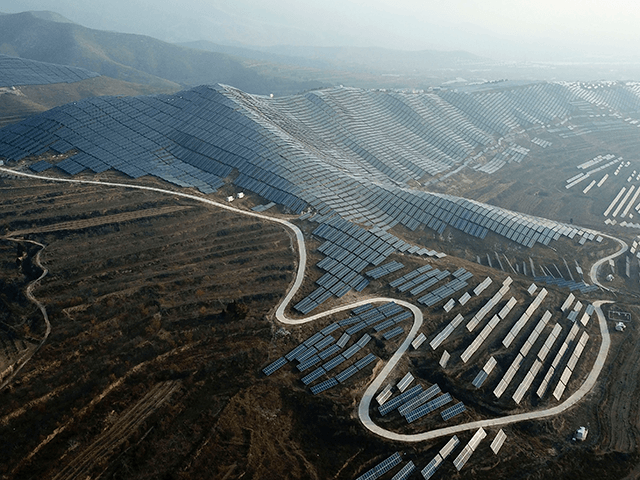U.S. Customs and Border Protection (CBP) on Wednesday banned the import of solar panel materials from Hoshine Silicon Industry, a Chinese company accused of enslaving Uyghur Muslims.
On Thursday, the U.S. Commerce Department blacklisted Hoshine and four other Chinese entities for using forced labor, one of them a paramilitary organization called the Xinjiang Production and Construction Corps (XPCC).
CBP issued a “Withhold Release Order” against silica-based products from Hoshine and its subsidiaries, based on “information reasonably indicating that Hoshine uses forced labor to manufacture” those items.
“Personnel at all U.S. ports of entry have been instructed to immediately begin detaining shipments that contain silica-based products made by Hoshine or materials and goods derived from or produced using those silica-based products,” the White House said Thursday
CBP said it found two of the eleven indicators of forced labor described by the International Labor Organization when it investigated Hoshine’s operations in Xinjiang province, specifically “intimidation and threats” and “restriction of movement.”
“Forced labor is a human rights abuse that hurts vulnerable workers, weakens the global economy, and exposes consumers to unethically made merchandise. CBP will continue to set a high global standard by aggressively investigating allegations of forced labor in U.S. supply chains and keeping tainted merchandise out of the United States,” said senior Customs official Troy Miller.
“As President Biden made clear at the recent G7 summit, the United States will not tolerate modern-day slavery in our supply chains,” said Homeland Security Secretary Alejandro Mayorkas, whose department includes CBP.
The Biden administration indicated it was considering a ban on Chinese polysilicon products, which are crucial for making solar panels, during the G7 summit two weeks ago. A bipartisan coalition of congressional representatives has been pushing for such a ban, while solar industry executives nervously observe that fully half of the world’s supply of polysilicon comes from Xinjiang.
Hoshine, for example, is the world’s top producer of metallurgical-grade silicon – the most important raw material used in solar panels. Market analysts say this means almost the entire chain of construction for solar panels is contaminated with forced labor.
The G7 nations made a joint commitment to oppose “state-sponsored forced labor of vulnerable groups and minorities” in the agriculture, solar power, and the garment industries, which are “the main supply chains of concern in Xinjiang.”
The Commerce Department’s Bureau of Industry and Security (BIS) added five Chinese entities to its blacklist Thursday, one of them Hoshine Silicon Industry. BIS accused these Chinese companies of “accepting or utilizing forced labor in the implementation of the People’s Republic of China’s campaign of repression against Muslim minority groups in the Xinjiang Uyghur Autonomous Region.”
“As we made clear during this month’s G7 summit, the United States is committed to employing all of its tools, including export controls, to ensure that global supply chains are free from the use of forced labor and technology is not misused to abuse human rights,” said Commerce Secretary Gina Raimondo.
The Chinese government insists allegations of enslavement in Xinjiang are “nothing but rumors with ulterior motives and downright lies,” as Foreign Ministry spokesman Zhao Lijian put it on Tuesday.

COMMENTS
Please let us know if you're having issues with commenting.